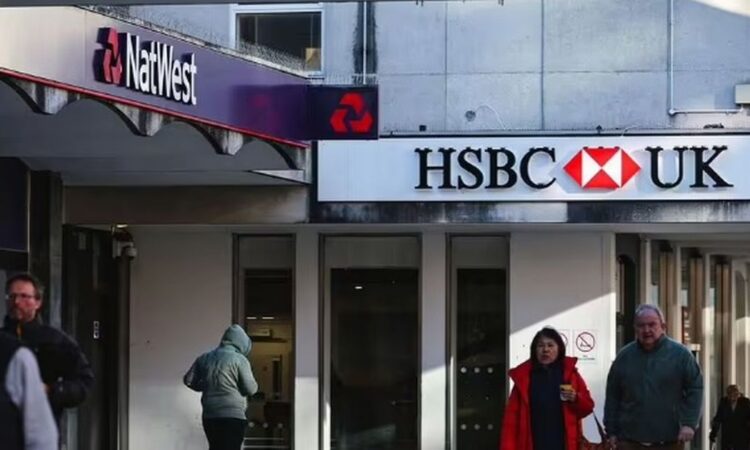
Bank account holders have been warned over 189 “imperative” services shutting. Almost 200 bank branches are closing this year after 645 branches were shut last year, as more and more customers stop visiting the high street.
Treasury minister Bim Afolami said in response to a question in Parliament: “It is imperative that banks and building societies recognise the needs of all their customers, including those who still need to use in-person services.
“The impact of branch closures must be mitigated where possible so that all customers, wherever they live, continue to have appropriate access to banking services.” Mr Afolami was responding to a question from fellow Tory MP, Dr Neil Hudson.
READ MORE Millions face fines this week after HMRC makes ‘baffling’ decision
Mr Hudson asked the Chancellor what steps he was taking “to maintain appropriate banking access in areas with (a) closing banks and (b) poor digital connectivity”. Mr Afolami added: “This seeks to ensure the implementation of closure decisions is done in a way that treats customers fairly.
“Where firms fall short, the FCA may ask for closures to be paused or other options to be put in place. Alternative options to access everyday banking services can be via telephone banking, through digital means such as mobile or online banking and via the Post Office or banking hubs.
“The Post Office allows personal and business customers to carry out everyday banking services at 11,500 Post Office branches across the UK, and banking hubs.” Mr Afolami said: “Access to digital services is key, which is why my colleagues in the Department for Science, Innovation and Technology are working with Building Digital UK (BDUK) to connect at least 85 percent of UK premises to gigabit-capable broadband by 2025, and for nationwide connectivity (at least 99%) to be realised by 2030.
“Over 80 percent of UK premises can now access gigabit-capable broadband, a huge leap forward from 2019, when coverage was just 6 percent.”





